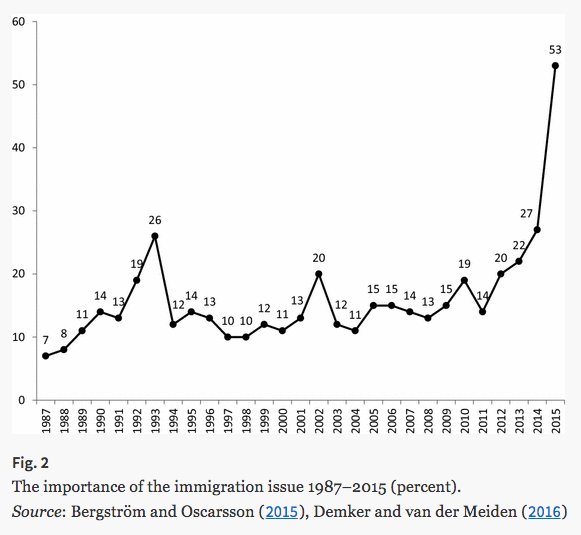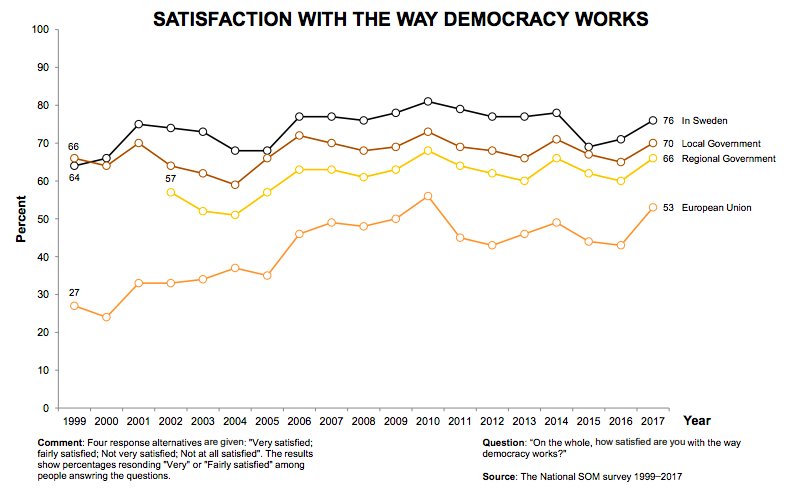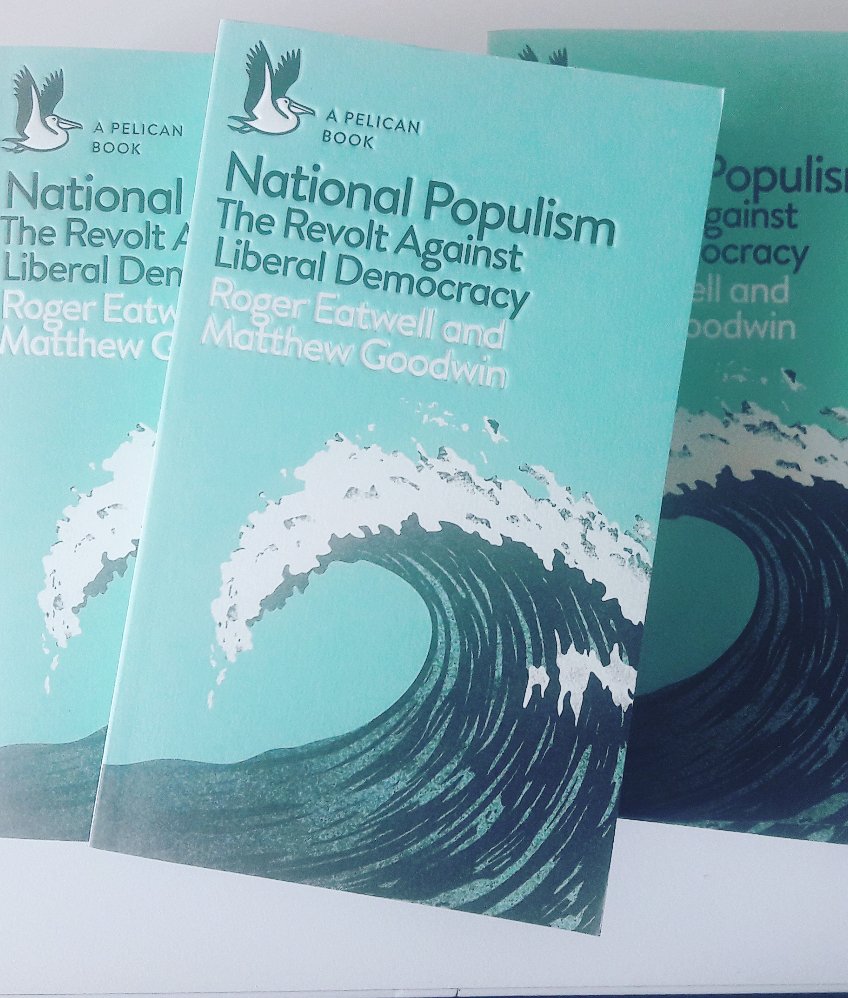Sweden
A thread
-captured new seats in state parliaments in Germany
-then a record 94 seats in German Bundestag
-returned to government in Norway
...
-taken power in Italy
-returned to power in Hungary
-polled strongly in Slovenia
- doubled their vote share in polls in Britain
-and are back up in the polls in Netherlands
Putin was comfortably re-elected
Spain saw its worst crisis for 40 years
Merkel is greatly weakened
Macron's ratings have sunk
social democracy remains in full-blown crisis
And Italy & the EU are standing off over budgets/refugees, reflecting wider divides
But if you are pointing to those as being integral to the future of Europe then … well, indeed
jensrydgren.com/Still%20a%20fa…
What we are now witnessing is not only that demand enlarging due to external shocks (terrorism/refugee crisis/Islam) but also ...
1 Social Democrats across the West are great at talking to the middle-class but bad at talking to workers
2 And great at talking about cultural liberalism but bad at talking about tradition, belonging, security, identity
The economic-GDP axis gradually began to make way for the identity-security axis
This was the famous "open your hearts" moment
bbc.co.uk/news/world-eur…
theguardian.com/world/2018/aug…
politico.eu/article/sweden…
Support for the party has been cut in half over the past quarter century
They have clear (legitimate) concerns & feel that, unlike the past, the main parties are offering more of the same (as this study shows onlinelibrary.wiley.com/doi/abs/10.111…)
theguardian.com/world/2018/sep…





























